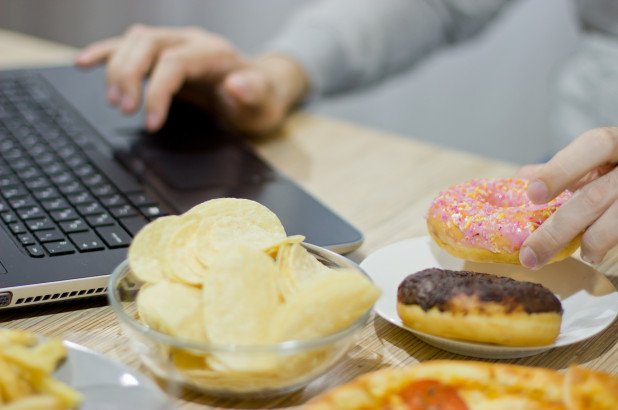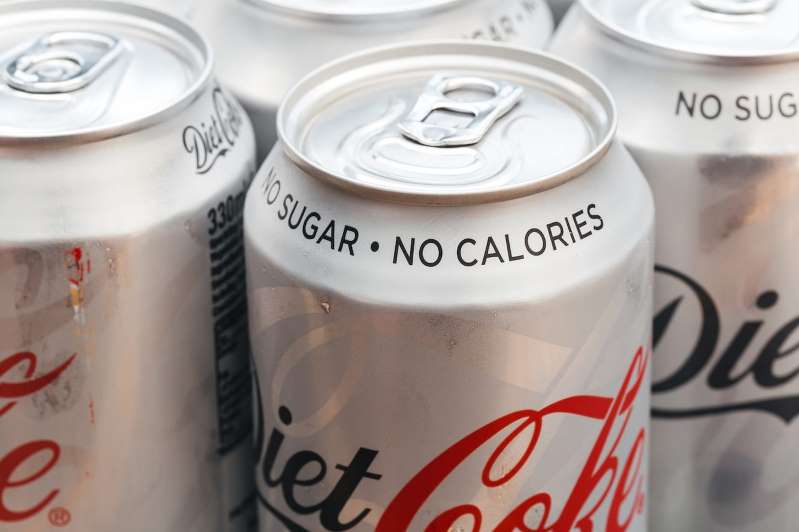BY: Doree Lewak
Watch out for the Quarantine 15.
Bingeing during the coronavirus crisis isn’t just about Netflix. Housebound locals are plowing through the pandemic with Pepperidge Farm cookies and frozen pizza, as stress-eating and boredom propel them through their lockdown provisions.
“I can’t stop eating — it’s the anxiety,” says Siggy Flicker, 53, a former star of the “Real Housewives of New Jersey.” She’s been holed up at home in Tenafly, NJ, since Thursday, where she’s anxiously watching the news — and “can’t stay out of the kitchen,” she says. “I’m always in snack mode. I don’t go an hour without eating.”
And eating. Over the weekend, she says, she and her family have plowed through bags of potato chips, sleeves of cookies, meatballs, schnitzel and “slutty brownies” — brownies with Oreos and a chocolate-chip-cookie layer, which she baked with her stir-crazy daughter on Monday afternoon.
“I won’t weigh myself. I’m too scared. I’m going to put on 10 pounds,” says Flicker, between bites.
Nutrition experts say this situational stress-eating makes sense. They’re seeing it with their own patients as people park themselves on their couches for lockdown — mere feet away from the fridge and a bunker’s worth of groceries.
“A client today told me he ate a whole pot of pasta due to stress and wanting to avoid working because his apartment is too chaotic with everyone home,” says Kimberly Hershenson, a Midtown therapist who specializes in eating disorders. “Another client ate a whole box of cookies because her friend decided she didn’t want to meet-up as planned — due to social distancing — and she felt bored and lonely.”
She thinks people are turning to emotional eating during the pandemic for simple reasons: It’s calming, and temporarily, it solves boredom, she says.
“People binge because they feel everything is going wrong in their life, so who cares if they gain weight, too?”
Ethan, a 28-year-old working from home on the Upper East Side, says that boredom is the big driver of his bingeing.
“There’s only so much to do in lockdown: read, work and eat. All I am doing is eating,” said the millennial, who asked not to use his last name for privacy reasons. “Just being confined to my apartment, when snacks are nearby, they are bound to be consumed.”
It doesn’t help that long stretches at home can be unusual for busy and social New Yorkers.
“I’m a very motivated person who is almost never at home — except for the few hours I sleep,” says Ethan, who’s been stuffing himself with delivery sushi and especially laments the closure of his gym. He says his cramped bedroom apartment is killing his drive. “I can’t bring myself to work out in my apartment. I can’t even exercise.”
So, how to stop the Open Mouth, Insert Food stress-snacking cycle?
“Try to create some structure to your eating,” says Tatiana Boncompagni, a healthy-eating expert and founder of the meal delivery company Eat Sunny. “Plan times to eat, meals, portions. Have a cutoff time for eating, to curtail grazing.” You can use an app to keep you accountable, or just write a note in your phone.
Boncompagni also recommends “eating as many vegetables as you can.” If you load up on those first, she says, you will have less room to fill up on junk. And even if you eat lousy stuff later, at least you know you ate some healthy stuff, too.
Also, just because nobody can see you eating right now, it doesn’t mean you should just dig your fork straight into the spaghetti pot like an animal. Hershenson says you should “always eat on a plate,” not out of packaging, to put a barrier between yourself and the bottom of the potato chip bag. If you have to stand up to get a refill, she says, you might decide not to bother standing up at all.
Finally, make room for a healthy “dessert” — a psychological one, not a caloric one.
“After eating, wait 20 minutes and do something else, such as meditating, watching a show or call a friend,” says Hershenson. “If you are truly hungry after 20 minutes, have something else, but usually after 20 minutes, your body recognizes you’re full.”
She also recommends finding non-culinary outlets for your coronavirus panic. “Journal and write down what is stressing you out,” she says. “Have a mantra such as ‘This is only temporary.’ ”
For her waistline’s sake, Flicker can’t wait for this to all come to an end.
“When you have law and order, your mind is clear, and you think clean foods. When the world is chaotic, and you’re seeing no toilet paper, that calls for Doritos, Oreo cookies and junk food,” she says. “I just want the world to be OK.”




